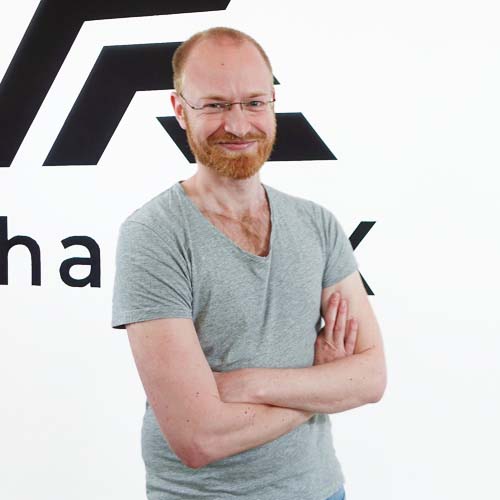Munich Startup: When we last spoke, you wanted to install as many charging points as possible with Chargex. What is the current status of your efforts?
Michael Masnitza, Chargex: It’s going very well! The interview was at the beginning of 2019, and the first small series came off the ‘production line’ – i.e. from our desks in the old office – in mid-2019. In December 2021, we then launched the second generation of our Aqueduct charging system and also launched our own app for operation. Here, users can prioritize the charging process. Operators have straightforward user management and billing and can adapt the charging current distribution to the needs of their business. In 2023, we added our own billing tool for hotels – our Hotel Dashboard. We now also have the (ominous) calibration right in our portfolio. In total, we now have more than 4,500 charging modules in the field with customers.
Munich Startup: What obstacles have you encountered along the way?
Michael Masnitza, Chargex: Firstly, of course, the fundraising: for a long time there was very little venture capital on the market for charging hardware. We therefore had to develop very capital-efficiently, which of course demanded a lot from our employees. We were only able to raise significant venture capital for growth once we had validated the hardware. Added to this were the relatively complicated German regulations for billing charging current, which are different from those in the rest of the EU. The certification for the aforementioned calibration law took a lot of time and resources. This set us back somewhat in international comparison, as we wanted to have the right product on the market in our home market. At the same time, the shortage of skilled workers and competition for employees in Munich was a very big issue for us. But through our collaborations with TU Munich and Munich University of Applied Sciences, we were able to attract many great employees!
Consistent concept with new features
Munich Startup: How has your solution evolved?
Michael Masnitza, Chargex: Not much has changed in terms of the concept, but the second version has added many more features: Load management is now phase-specific, the plug-in system is even easier to handle thanks to the new housing and the plugs have been revised so that even a layman can assemble the system with almost furniture store-like instructions.
With certification in accordance with German calibration law, we can also map all billing in private, semi-public and public areas. For us, this is particularly the billing of charging current with employees at the workplace or the billing of guests in the hotel sector. The greenhouse gas quota can now also be billed through us.
We have also greatly expanded digitally. We have developed a special administration and billing solution for small and medium-sized companies and integrated it into the “Drop Power Sharing” user app. The aforementioned hotel dashboard has also been added.
Munich Startup: And how are things looking financially for you?
Michael Masnitza, Chargex: Financially, of course, there were ups and downs. The coronavirus period was also tough for Chargex. But with a successful crowd investment campaign, we were able to close a strong Series A financing and recently a very successful Series B growth financing. Our sales are increasing well. Especially as our more than 600 existing customers are equipping more and more parking spaces with charging facilities.
Chargex: “The Munich ecosystem is of course brilliant for a mobility startup”
Munich Startup: What role has the Munich ecosystem played in your journey so far?
Michael Masnitza, Chargex: The Munich ecosystem is of course brilliant for a mobility startup. Our lead investor, for example, is from the local network: UnternehmerTUM Venture Capital from Munich. We are testing innovative product and service ideas with DE:hub mobility and Citizen mobility and, together with the Technical University of Munich, we are part of the largest applied research project for mobility, MCube. This naturally helps us, especially in finding ambitious employees. After all, our success is based on our great team, which almost doubles in size every 12 months.
Munich Startup: What milestones are you working towards next?
Michael Masnitza, Chargex: Our digital product is about to change a lot. We are enabling automatic direct debit from users and automatic forwarding to the operator, i.e. our customer. There will also be a dashboard for fleet managers.
In addition, our Aqueduct NEO will be launched in April with even more simplifications for installation – you really can’t get any more plug & play than that!
And something that is very high on our agenda: We are currently looking for pilot customers from the housing industry, because Aqueduct is also perfect for commercial landlords. However, there is still almost no charging infrastructure in this area. If a reader happens to own or operate a few dozen rented residential or commercial units, we are ready for the first pilots!




